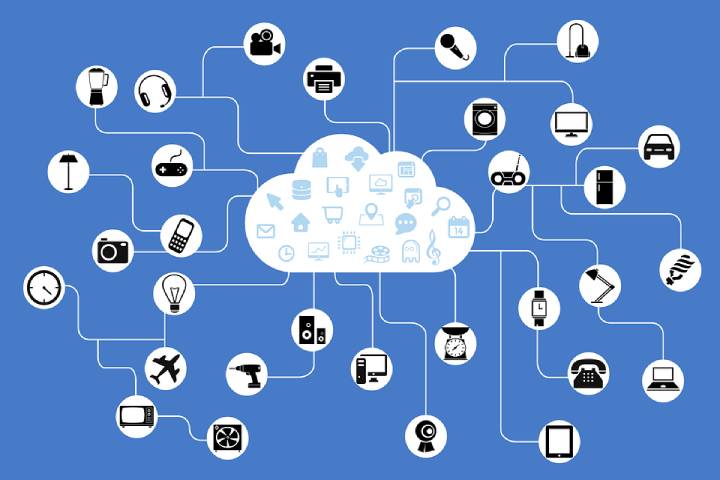With the world being faced with a global pandemic, many organizations are at a point where their choice of cloud computing can determine their long-term survival and profitability.
More than ever, the importance of flexible cloud deployment has become apparent as enterprises need to become increasingly flexible about their process, workloads, and support.
While new cloud models are emerging, current models are also developing to meet the needs of business models that are becoming progressively bespoke.
Although we are nearing the half-way mark of 2020, it is never too late to have a closer look at some of the cloud computing trends that will continue to make an impact during a very heated yet propitious 2020.
From multi-cloud management platforms to an increase in the use of cloud-based AI, the remainder of the year promises to see cloud computing becoming more impactful than ever before.
Table of Contents
1. Multi-cloud management platforms are assuming greater importance.

Multi-cloud management instruments have become of great importance to organizations that aim to merge private, public, and edge cloud resources into an integrated framework.
During the year, an increasing number of cloud administrators will embrace management profiles such as Google Cloud Anthos, Microsoft Azure Arc, CloudCenter Suite by Cisco Systems, and IBM Services for Multi-Cloud Management for the enhanced mapping, examining, detection, security, troubleshooting, and diagnostics of various cloud micro-service assignments.
Data catalogs such as those offered by IBM, Informatica, Collibra, and Alation will be utilized to speed up rational queries and the conception of data and meta-data resources. Furthermore, professionals in the field of Development Operations will embrace receptacles such as GitLab, GitHub, and BitBucket that bridge various storage and visualization settings.
2. An upsurge in private cloud repatriation is in effect.
We have already experienced a substantial increase in the number of providers offering private cloud computing services that include cloud hosting, cloud storage solutions, and a range of virtualization and cloud computing services.
This year, technologies such as containers that enable application mobility are making it notably easier to move to private infrastructure.
While this may be a novel concept to some, many organizations are taking full advantage of the simplicity of the repatriation process as they become more accustomed to benefits offered by different cloud environments.
Although making a move towards private cloud infrastructure is becoming more commonplace, it does not automatically entail the deceleration of migrations to public cloud platforms.
What will occur, however, is a more balanced flow of traffic in both directions, which will not only increase long-term client satisfaction but stimulate the enabling of hybrid cloud environments as well.
3. The hybrid cloud continues to rise.
Hybrid cloud became a red-hot trend during 2019 already when IBM closed the landmark acquisition of Red Hat while Oracle Cloud, Microsoft’s Azure, and Dell Technologies also all launched impressive products.
As a multitude of cloud providers offers organizations greater flexibility, hybrid cloud will continue to be the consumption model of choice. According to research firm Gartner, up to 75% of enterprises will have implemented a multi- or hybrid cloud model by the end of 2020.
Another report, this time by research firm MarketsandMarkets, indicates that the increasing demand for hybrid cloud is riven by a range of factors including stability, cost efficiency, security, and agility.
The report also predicted that the hybrid cloud market would increase to a value of $97.6 billion by 2023, with a lot of the growth taking place during 2020.
4. AI is enjoying increased usage in the data center.
2020 has already experienced increased use of artificial intelligence (AI) in the data center. AI has been proven to be extremely versatile and can be utilized to detect patterns in hardware failures, save energy, and boldly solve a range of problems before they occur.
These AI-centric platforms can also virtually aid data centers in learning from historical data and to allocate capacities more evenly and efficiently over peak periods.
Enterprises that are experiencing a shortage of skills can also benefit significantly from AI integration. Gartner, the world’s foremost research and advisory company, predicted that this year would see up to 75% of organizations experiencing a range of noticeable disruptions caused by infrastructure as well as operational skill variances.
Artificial intelligence can automate a variety of tasks currently performed by humans. The remainder of 2020 will undoubtedly see an increase in the number of AI-based solutions and services being delivered via the cloud.
A world without ever-developing cloud computing will undeniably be one marred by inefficiency. Thankfully, a continuous stream of technological advancements has made cloud computing a powerful force in modern-day business operations. It is predicted to continue to go from strength to strength.
Tech Trends
Related posts
Leave a Reply Cancel reply
Hot Topics
Categories
- Ads (5)
- Animes (25)
- Artificial Intelligence (AI) (35)
- Augmented Reality (AR) (10)
- Automotive (9)
- Bitcoin (16)
- Blockchain (24)
- Business (244)
- Business Intelligence (3)
- Cloud Computing (23)
- Computer (128)
- Concrete Technology (1)
- Cryptocurrency (10)
- Cybersecurity (42)
- Data Science (9)
- Database (4)
- DevOps (6)
- Digital Marketing (76)
- Digital Workplace (14)
- Ecommerce (1)
- Education (28)
- Electric Vehicle (EV) (1)
- Electronics & Hardware (17)
- Entertainment (42)
- Fabrication (3)
- FAQ's (1)
- Finance & Marketing (47)
- Gadgets (35)
- Games (8)
- Gear (29)
- HTTPS (1)
- Industry (46)
- Information Technology (90)
- Internet (413)
- Internet of Things (IoT) (41)
- Job (25)
- Machine Learning (6)
- Marketing (92)
- Mobile Apps (21)
- Movies (11)
- Natural Language Processing (6)
- News & Trends (109)
- Programming (4)
- Science & Technology (235)
- Security (81)
- SEO (56)
- Services (36)
- Social Media (73)
- Software (99)
- Sports (1)
- Technology (306)
- Telecom (6)
- TikTok (5)
- Tours & Travels (9)
- Uncategorized (11)
- Virtual Reality (VR) (7)
- VoIP (4)
- Web Technology (42)
- Workforce (17)
- Workspace (6)



Stay connected